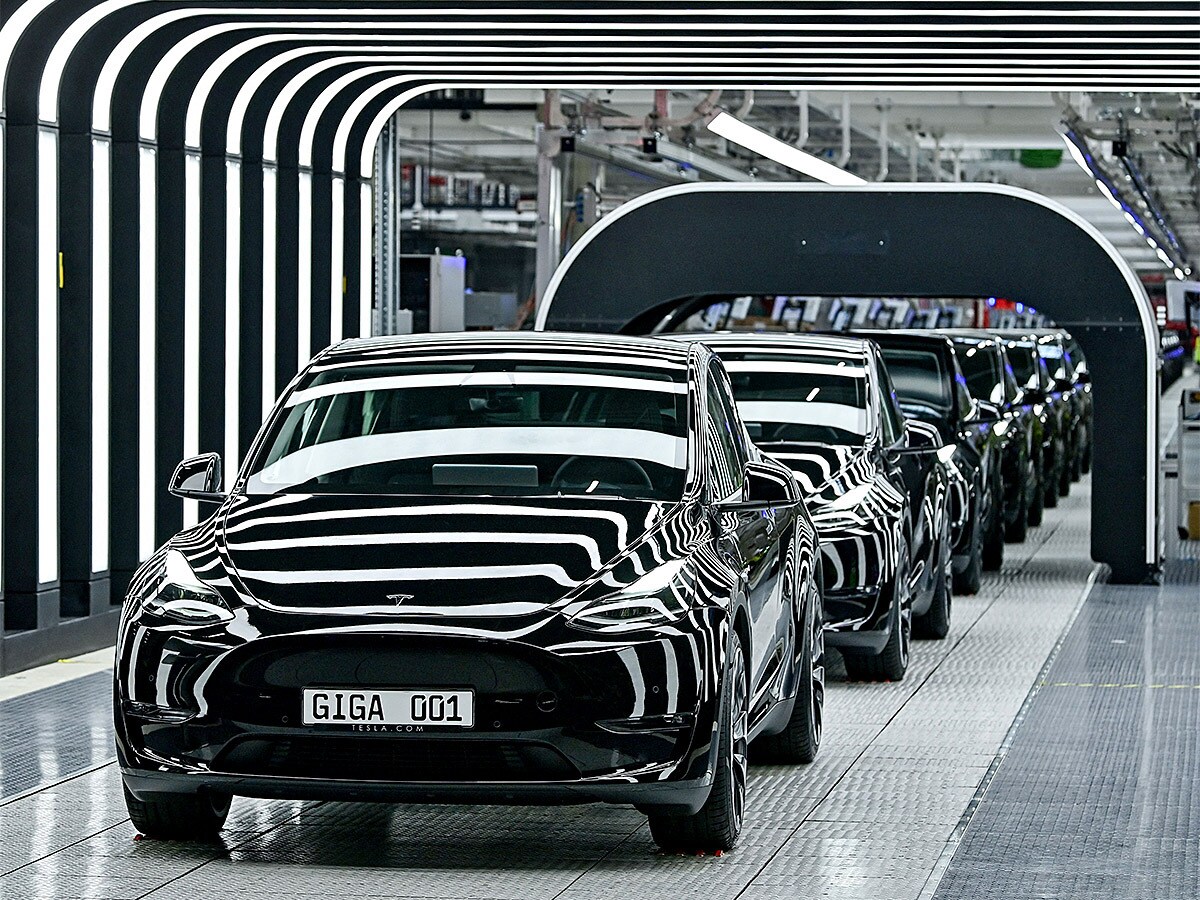Tesla is trying to conquer China, the world’s biggest EV market, but locals are increasingly favouring cheaper Chinese brands such as BYD, Nio, XPeng and Li, meaning Tesla could have its work cut out attracting buyers in future unless it expands its range.
- Chinese EV maker BYD overtakes Tesla by global sales volume in 2022.
- A record-breaking 8.4 million Chinese EV sales are forecast for 2023.
- Global X Autonomous & Electric Vehicles ETF gives exposure to Tesla stock and is up 20% year-to-date.
The share prices of electric vehicle (EV) companies like Tesla [TSLA], BYD [BYDDF], XPeng [XPEV] and Nio [NIO] are rallying this year, after a slippery 2022.
Tesla stock has soared 69.1% this year, after tumbling 65% in 2022. However, last year, Chinese EV-maker BYD—which is backed by Warren Buffett—overtook Tesla by global sales volume, and has a market value of $104bn. In 2022, sales of its best-selling Qin and Han models jumped by 82.6% and 132.2%, respectively.
By contrast, the China Passenger Car Association (CPCA) reported that sales of Tesla's Model 3 dropped by 17.5% last year.
BYD shares are up 19.3% year-to-date, but down 5.2% over the past 12 months. Nio, another one of Tesla’s competitors in China, saw its stock slip 4% during trading on 10 February after reporting poor sales in January, but year-to-date its shares are up 4.5%. XPeng has fallen 4.1% in 2023 so far.
Tesla EV sales up, but for how long?
Reporting $21.3bn fourth quarter (Q4) revenues, Tesla’s earnings call at the end of January was “better than feared” according to George Gianarikas, analyst at Canaccord Genuity.
Tesla’s cost-cutting strategy appears to have paid off, at least temporarily. Despite growing competition, demand for its vehicles spiked in China after the company reduced the price of its Model 3 and Model Y cars, with sales soaring 18% above the December figure, to 66,051 vehicles.
By contrast, in January Nio delivered just 8,506 vehicles, a fall of 46% from December’s 15,815 and of 11.9% year-over-year. XPeng and Li Auto [LI] also saw sales slump.
However, this followed record sales for Nio, XPeng and Li in December. Citi analyst Jeff Chung said he believed that Wall Street “should not read too much into the poor January sales at the current stage”.
Some analysts are of the opinion that Tesla must expand its product range in order to stay competitive in China. “Its slowness to respond to Chinese consumers' preferences has led to a very passive positioning for Tesla,” Cui Dongshu, secretary general of the CPCA, told Reuters.
BYD leading the market
As the world’s biggest market for EVs, China remains a key country for carmakers to break into. BYD might be the rival that Tesla needs to keep the closest eye on, as it enjoys a hefty slice of the market.
At the end of January, BYD announced its income for 2022 reached 17bn yuan, with EV sales soaring to 1.86 million during the year. Income was up 458% compared to 2021, and higher than analyst estimates of 13.2bn yuan, according to Bloomberg. The company also says it plans to move into the luxury car market to boost profits further.
At present, BYD, which makes plug-in hybrid cars, remains focused on the Chinese market, but it plans to expand into Latin America and is opening a factory in Thailand. BYD is also making a play for the growing European EV market, along with Nio, which also has its sights on the US—a move that could threaten Tesla’s hold on its home market.
According to Bernstein analysts, almost 50% of China’s vehicle sales will be EVs by 2025. Neil Beveridge, an analyst with Bernstein, told the Financial Times that “seven out of every 10 electric vehicles are now sold in China”.
Funds in focus: Global X Autonomous & Electric Vehicles ETF
Tesla is currently the number-one holding in the Global X Autonomous & Electric Vehicles ETF [DRIV], with a 4.65% weighting in the fund as of 17 February. The fund offers more limited exposure to Nio and XPeng, at respective weightings of 0.98% and 0.91%.
The fund has risen by 21.1% year-to-date, but is down 12.4% over the past 12 months.
The KraneShares Electric Vehicles & Future Mobility Index ETF [KARS] has Tesla as its second-largest holding, at a weighting of 4.48% as of 17 February. Li is the eight-largest holding at 3.16% of assets under management (AUM), while BYD is the 10th-largest at 2.78%. Nio accounts for 2.38% of AUM, while XPeng accounts for 1.73%.
KARS is up 13% year-to-date, and down 20.9% in the past 12 months.
Disclaimer Past performance is not a reliable indicator of future results.
CMC Markets is an execution-only service provider. The material (whether or not it states any opinions) is for general information purposes only, and does not take into account your personal circumstances or objectives. Nothing in this material is (or should be considered to be) financial, investment or other advice on which reliance should be placed. No opinion given in the material constitutes a recommendation by CMC Markets or the author that any particular investment, security, transaction or investment strategy is suitable for any specific person.
The material has not been prepared in accordance with legal requirements designed to promote the independence of investment research. Although we are not specifically prevented from dealing before providing this material, we do not seek to take advantage of the material prior to its dissemination.
CMC Markets does not endorse or offer opinion on the trading strategies used by the author. Their trading strategies do not guarantee any return and CMC Markets shall not be held responsible for any loss that you may incur, either directly or indirectly, arising from any investment based on any information contained herein.
*Tax treatment depends on individual circumstances and can change or may differ in a jurisdiction other than the UK.
Continue reading for FREE
- Includes free newsletter updates, unsubscribe anytime. Privacy policy





